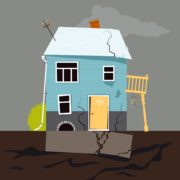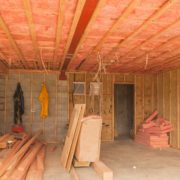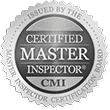How to Counter Offer After a Home Inspection
The contract is signed for the home you found after weeks of searching and now starts the transaction towards making the home yours. The next advisable, but not required step, is the home inspection. More than 90% of buyers get a home inspection because a home is a huge investment. The last thing a buyer wants is to buy a “lemon.” We only know what is wrong with a home by sight so a home inspection looks at it more in-depth. If the inspector finds things wrong with the home, can you counter offer after a home inspection? Yes! In most cases. Let’s take a look.

What is a Home Inspection?
A home inspection is an examination of a home that is more in-depth than what is seen with the naked eye. This usually happens within a few days of the buyer and seller entering into a contract. It can be difficult to choose a home inspector so researching an experienced, certified inspector with positive reviews is important to make sure you find a good one.
InterNachi recommends certain areas to be inspected. Those areas are exterior, HVAC, plumbing, roof, attic, insulation, electrical, fireplace, attic, ventilation, doors, basement, foundation, and interior.
What is a Counter Offer?
After a home inspection, a buyer may “counter offer.” This is a process in which the buyer asks the seller in writing to re-open negotiations and to repair major areas on the inspection report. When purchasing a home, a buyer should be able to make the purchase and not have major issues. The buyer has the right to ask for the issues to be taken care of and the seller has the right to say no.

Why Counter Offer After a Home Inspection?
In a perfect world, an experienced and certified home inspector would find nothing wrong with the home and give the home a clean bill of health. Unfortunately, that doesn’t happen very often. Minor repairs like a new faucet in the bathroom or fixing a cracked tile may come up in the report. The buyer can make minor fixes like these at a later date. However, major issues such as electrical or HVAC issues would be a reason to counter offer after a home inspection. Even though there are no “mandatory” fixes, a seller should want to fix these issues as they can be harmful.
What Are the Options for Buyer and Seller?
Buyer
Every buyer should have an experienced realtor who is part of The National Association of Realtors. The realtor will help the buyer decide which areas are important on the inspection report to have repaired or replaced and help with negotiations. Calling on a professional to come out and give an estimate for those repairs will be helpful in the written counter offer so both parties know what the expense for the repair or replacement will be.
Seller
The seller receives the request for a counter offer from the realtor and will decide if he/she wants to accept it.
The counteroffer after a home inspection
The buyer and the realtor write the counter offer to ask for specific repairs or replacement. This request should be cordial and kind and not demanding and mean. A letter that comes across harsh can upset the seller and he/she can call the deal off. This written offer should also include a copy of the home inspection report and the estimates from the professional.
In addition, the realtor may agree to a request for a “repair credit” to add to the contract. This helps the buyer and the seller as the seller won’t need to have the money handy. The seller also won’t need to rush a repair and can subtract the expense in the closing costs. The buyer wins in this as well as he/she there is no need to worry that the repair is done honestly. Additionally, the buyer saves on closing costs in the end.

Is It a Buyers or Sellers Market?
If it is a buyers market, it means there are a plethora of homes for sale. Also known as “supply exceeds the demand” and this allows the buyer to have the upper hand in negotiations. The buyer can get a seller to agree to requests for repairs in this type of market, “repair credit” or a lower price on the home.
In contrast, a sellers market is “demand exceeds supply” and the seller has the upper hand in negotiations. The seller can decide if he/she wants to meet the requests in negotiations. However, often there may be multiple offers on the home and the seller may not feel the pressure to negotiate.
Conclusion
Keep in mind that no home is perfect. Rarely there is a home inspection that doesn’t turn up a repair. The buyer will need to decide how much he/she wants the home and the amount of money and time to put into the home. Unfortunately, sometimes we love a house but the inspection report tells us there are a lot of issues and it is time to walk away.
Have you counter offered on a home? Or did you have a home inspection and wondering if a counter offer should be your next step? Drop us a line below, we would love to hear from you!













